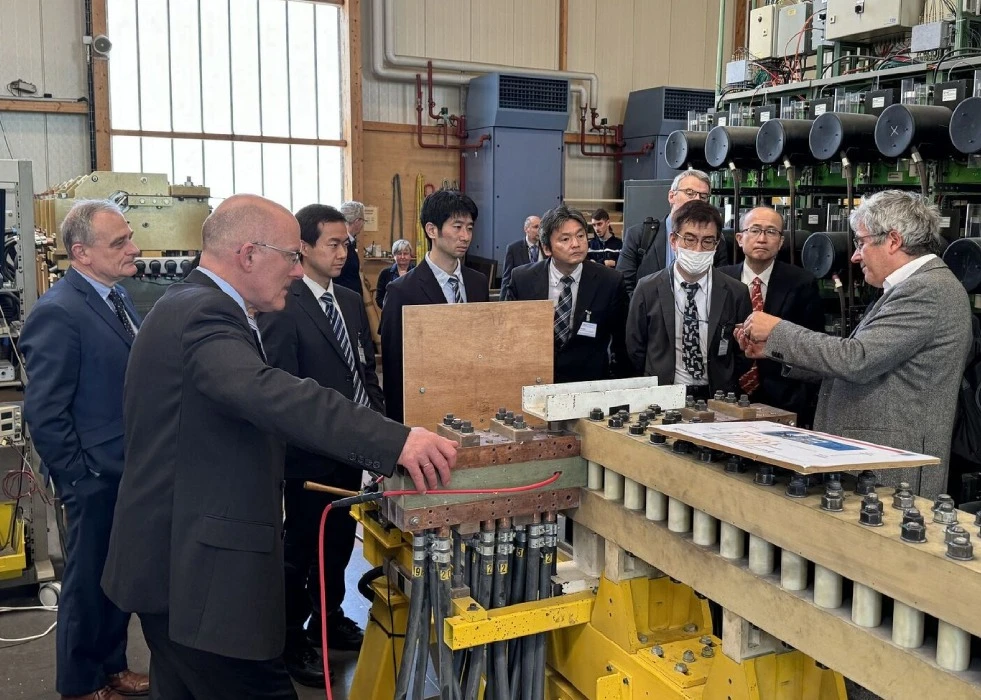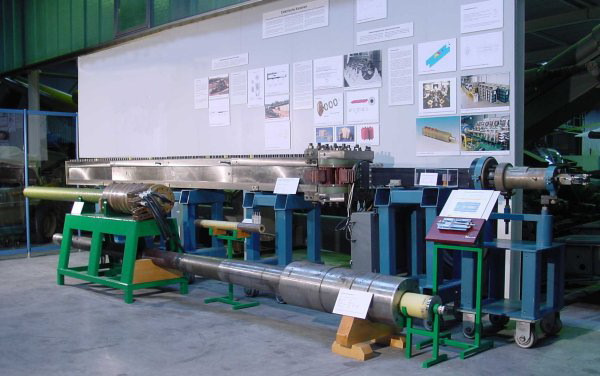
日本のレールガン:独仏と共同研究へ
Japan’s railgun: Joint research with Germany and France
日本軌道炮:與德國、法國聯合研究
・独仏国防省及びサン=ルイ研究所と技術協力
・ISL は25 mm railgun(RAFIRA)を開発中
乗りものニュース掲載記事からSummaryをお届けします。

防衛装備庁
2024年5月30日、フランスとドイツ両国の防衛当局と、「レールガン技術の協力に係る実施要領」の署名を行った。
1.レールガン技術に関する情報共有や意見交換を円滑に進める。
2.日仏独3か国間での協業可能性を検討することを目的とする。
防衛省では実施要領を活用しつつ、レールガンの早期実用化に向けて研究開発に取り組む。

日本の防衛装備庁:
1.防衛力整備計画で、今後もレールガンに関する研究を継続。
2.2024年度予算に、研究費として236億円を計上した。

日本のレールガン開発:
レールガンは、電気エネルギーで弾丸を放つ「電磁砲」のこと。
1.火薬を使う従来の砲よりも、弾丸の初速を大幅に向上。
2.弾丸が小さく、探知されにくい利点がある。
レールガンの用途:
3.従来兵器では防空が難しい「極超音速誘導弾」などに対処
4.艦艇や地上目標に対し、回避困難な反撃手段として使う。
まずは小口径のデータを取得する。その後、中口径の開発する予定。
https://news.yahoo.co.jp/articles/c7930e2426899772b531e5dad1d7b2a6ac0ba87d
防衛省・自衛隊:レールガン技術の協力に係る実施要領
防衛省、
フランス国防省、
ドイツ連邦国防省
仏独サン=ルイ研究所
5月30日、「レールガン技術の協力に係る実施要領」に署名した。
レールガン技術協力の実施:
参加機関間のレールガン技術に関する情報・意見交換を円滑に進める
1.レールガン技術研究・開発・試験・評価で、協業可能性を検討。
2.本実施要領を活用し、防衛省は、日本の防衛力を強化する。
https://www.mod.go.jp/j/approach/exchange/area/2024/20240530_fra_deu-j.html

Japan Joins :Germany and France for Railgun Development
from TURDEF
Acquisition, Technology & Logistics Agency (ATLA) of Japan:
ATLA has joined the French-German consortium to develop railguns.
This marks another new instance of Japan joining a multi-national high-technology weapon system programme after the well-known GCAP fighter programme.
The trilateral agreement:
will allow countries to unite their technology on power sources, railguns and hypersonic projectiles.

France and Germany:
working on railguns through the Research Institute of Saint-Louis (ISL).
ISL is developing:
The prototype is intended to serve as a test model for research into using railguns as air defence weapons.
1.a 25 mm railgun prototype named RAFIRA with the capability to fire five rounds in a single salvo.
2.The railgun will be capable of accelerating 100 gr projectiles roughly to a speed of Mach 7.35.

Japan tested a prototype:
1.a JMSDF ship’s deck in October 2023, with the round reaching a speed of Mach 6.5. In August 2023,
2.23.8 billion ¥ (About $ 164.3 million) was requested to continue railgun development.
Japan’s idea:
an operational railgun is an artillery system capable of hitting surface and air targets with airburst ammunition to serve the navy and army.

Most countries developing railguns:
1. a velocity goal for operational systems between Mach 6-8.
2.This will allow both a more extended range and increased lethality.
Projectiles at hypersonic speeds excel against hardened targets like bunkers and warships.

Due to high energy requirements:
for the time being, there isn’t a pressure to introduce the railguns operationally.
Aside from energy requirements:
mechanical issues such as friction and heating due to the extreme speeds of railgun components are also present.
https://turdef.com/article/japan-joins-germany-and-france-for-railgun-development
China’s :Hypersonic Rail Gun Test Fails!
-As It Looked To Launch Smart Bomb Into Stratosphere-
from Eurasiantimes Reports

The Chinese navy:
It recently conducted a test of an electromagnetic rail gun, launching a precision-guided munition into the stratosphere at hypersonic speed.
a test of an electromagnetic rail gun:
involved firing a smart bomb to a height of 15 kilometers into the stratosphere at a speed surpassing Mach 5, or five times the speed of sound.
the experiment was unsuccessful:
Despite the initial excitement over the successful launch, the experiment was later deemed unsuccessful.
The Chinese media report said:
the projectile did not follow the anticipated trajectory, and both the maximum range and altitude fell short of design values.
identified a critical issue:
Upon analyzing data transmitted back to the ground by the smart bomb,
Lu’s team identified a critical issue:
the projectile was rotating too rapidly during its ascent, causing an unintended tilt.

This discovery led to the realization of a technical hurdle:
known as “rotational speed latching,” which posed a significant challenge to the practical application of rail guns.
Further complicating matters
external protrusions on the projectile, such as gliding wings and tail rudders, which can undergo deformations during launch.
These deformations, though minor, can have major implications for aerodynamic stability, particularly in hypersonic environments.
https://www.eurasiantimes.com/new-china-fires-smart-bomb-into-stratosphere/